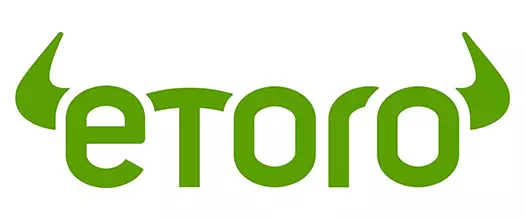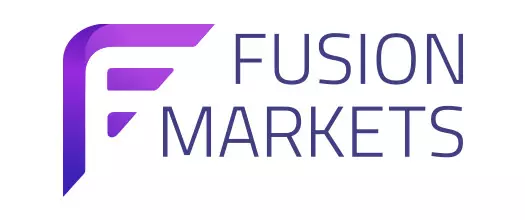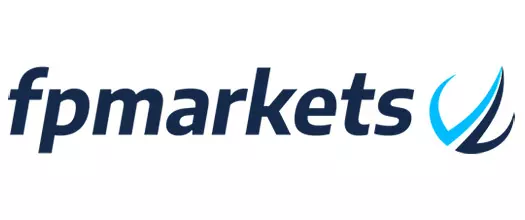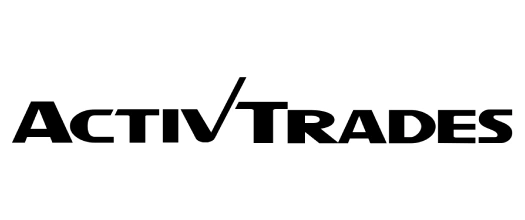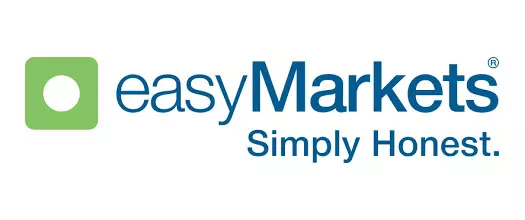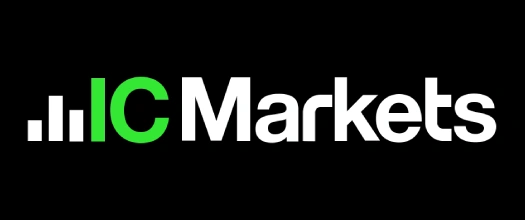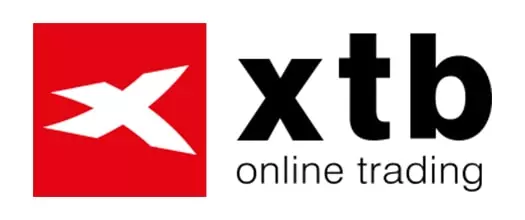Our team of expert traders tested several regulated and trustworthy US Tech 100 brokers and compiled a top list of the best among them. Every platform allowing CFDs on the US Tech 100 Index received a quality score based on several factors, including its Trustpilot rating, regulation, fees and commissions, available trading platforms, customer service and more.
 Plus500 USThis content applies only to Plus500 US and clients from the United States. Trading futures involves the risk of loss.
Plus500 USThis content applies only to Plus500 US and clients from the United States. Trading futures involves the risk of loss. eToro61% of retail investor accounts lose money
eToro61% of retail investor accounts lose money Fusion Markets74-89% of retail's CFD accounts lose money
Fusion Markets74-89% of retail's CFD accounts lose money FP Markets73.85% of retail investor accounts lose money
FP Markets73.85% of retail investor accounts lose money Global Prime74-89% of retail CFD accounts lose money
Global Prime74-89% of retail CFD accounts lose money Pepperstone75.5% of retail investor accounts lose money
Pepperstone75.5% of retail investor accounts lose money
Top US Tech 100 trading brokers
US Tech 100, sometimes referred to as the Nasdaq 100, is an actively traded stock index that attracts the attention of many traders. Although it is considered quite a safe trading product, there is still a degree of unpredictability, which is why it is of utmost importance to have a thorough understanding of its specifics. Before selecting a trading broker, we advise you to carefully examine the trading conditions it offers and decide whether the imposed spreads, fees and commissions are acceptable for you.
 TRADE NOWREAD REVIEWPlatformscTrader, DupliTrade, Fusion+ Copy Trading, MetaFX, MetaTrader 4, MetaTrader 5, TradingViewMin Deposit$0FeesSwap rates visible through MT4 and MT5 accountsDeposit MethodsCommissionsFrom $0SpreadEUR/USD: AVG 0.93 pips, GBP/USD: AVG 1 pips, USDJPY: AVG 1.7 pipsWithdrawal MethodsLeverage EU1:20Leverage non-EU1:500 (ASIC | Pro Account), 1:30 (ASIC | Retail Account), 1:500 (VFSC | Retail Account)InstrumentsCommodity CFDs, Crypto CFDs, Forex CFDs, Index CFDs, Metal CFDs, Stock CFDsGleneagle Asset Management Limited (ABN 29 103 162 278) trading as Fusion Markets, is the issuer of the Fusion Markets Products described in this communication. Trading in Fusion Markets Products involves the potential for profit as well as the risk of loss which may vastly exceed the amount of your initial deposit and is not suitable for all investors. You should read all of these Financial Product Service Terms, the Product Disclosure Statement (PDS) and the Financial Services Guide (available on our website) carefully, consider your own financial situation, needs and objectives for investing in these Fusion Markets Products and obtain independent financial advice.
TRADE NOWREAD REVIEWPlatformscTrader, DupliTrade, Fusion+ Copy Trading, MetaFX, MetaTrader 4, MetaTrader 5, TradingViewMin Deposit$0FeesSwap rates visible through MT4 and MT5 accountsDeposit MethodsCommissionsFrom $0SpreadEUR/USD: AVG 0.93 pips, GBP/USD: AVG 1 pips, USDJPY: AVG 1.7 pipsWithdrawal MethodsLeverage EU1:20Leverage non-EU1:500 (ASIC | Pro Account), 1:30 (ASIC | Retail Account), 1:500 (VFSC | Retail Account)InstrumentsCommodity CFDs, Crypto CFDs, Forex CFDs, Index CFDs, Metal CFDs, Stock CFDsGleneagle Asset Management Limited (ABN 29 103 162 278) trading as Fusion Markets, is the issuer of the Fusion Markets Products described in this communication. Trading in Fusion Markets Products involves the potential for profit as well as the risk of loss which may vastly exceed the amount of your initial deposit and is not suitable for all investors. You should read all of these Financial Product Service Terms, the Product Disclosure Statement (PDS) and the Financial Services Guide (available on our website) carefully, consider your own financial situation, needs and objectives for investing in these Fusion Markets Products and obtain independent financial advice.Fusion Markets is a low-cost Australian brokerage that offers trading in indices, stocks, commodities, forex, and other highly sought-after asset classes. The broker has no minimum deposit requirement and allows commission-free trading, which is why it is considered an ideal choice for retail traders. Another key advantage is its professional and friendly customer support team, available via live chat, phone, and email.
Because Fusion Markets is still a relatively young company, its operations are regulated by a single top-tier body – the Australian Securities and Investments Commission (ASIC) – as well as by the Vanuatu Financial Services Commission (VFSC) and the Financial Services Authority of Seychelles.
The index section of the brokerage comprises 10 indices, including the US Tech 100 (referred to as NAS100). Both minimum and average spread values are provided, while the respective swap rates can be viewed only after logging in to your account on one of the supported platforms – MetaTrader 4 or MetaTrader 5. In addition to MT4 and MT5, Fusion Markets allows its clients to benefit from two copy-trading services – Myfxbook AutoTrade and DupliTrade. Both have their own communities of registered users that can be explored and filtered according to various indicators.
 TRADE NOWREAD REVIEWRegulatorsCySEC (Cyprus, # 371/18), FSAS (Seychelles, # SD130), FSCA (South Africa, # 50926), SCB (Bahamas), ASIC (Australia, # 286354), FSCM (Mauritius, # GB21026264)PlatformscTrader, IRESS, MetaTrader 4, MetaTrader 5, TradingView2. FP MarketsMin Deposit$50 (AU$100)FeesOvernight interest (Daily):
TRADE NOWREAD REVIEWRegulatorsCySEC (Cyprus, # 371/18), FSAS (Seychelles, # SD130), FSCA (South Africa, # 50926), SCB (Bahamas), ASIC (Australia, # 286354), FSCM (Mauritius, # GB21026264)PlatformscTrader, IRESS, MetaTrader 4, MetaTrader 5, TradingView2. FP MarketsMin Deposit$50 (AU$100)FeesOvernight interest (Daily):- Sell: -0.69%
- Buy: -1.41%
Deposit MethodsCommissionsNoneSpreadEUR/USD: AVG 1.2 pips, GBP/USD: AVG 1.4 pips, USDJPY: AVG 1.5 pipsWithdrawal MethodsLeverage EU1:500 (CySEC | Pro Account), 1:30 (CySEC | Retail Account)Leverage non-EU1:30 (ASIC | Retail Account), 1:500 (FSAS | Retail Account)InstrumentsCommodity CFDs, Crypto CFDs, Energy CFDs, Forex CFDs, Index CFDs, Metal CFDs, Stock CFDsTrade Responsibly: Derivative products are highly leveraged, carry a high level of risk and are not suitable for all investors.FP Markets is a well-regulated global CFD broker that offers trading across indices, forex, metals, commodities, and cryptocurrencies. The company has won multiple awards, the most recent being “Best Trade Execution” at the Ultimate Fintech Awards 2022, received just a few days before this article was written.
Regarding the trading platforms available at FP Markets, we’ll start with MetaTrader 4 and MetaTrader 5. Users can choose between two account subtypes – Standard and Raw – both of which come with a $100 minimum deposit requirement, ECN pricing, and a minimum trade size of 0.01 lots. The primary difference is that Raw account holders pay a commission of $3 per side in exchange for more favorable spreads. FP Markets also offers Iress, a web-based trading platform that supports multiple product types but is mainly focused on shares.
FP Markets users can take advantage of its Copy Trading functionality, which allows them to replicate the strategies of experienced, top-performing traders. The steps are quite simple. First, you need to open an MT4 or MT5 account and make a deposit using any of the supported payment methods. Next, go to the Ratings page and choose a trader to follow. There are different trading modes, with no restrictions on the number of traders you can follow. The automated nature of the service does not prevent you from using additional protective measures such as stop-loss and take-profit orders.
 TRADE NOWREAD REVIEWRegulatorsCONSOB (Italy, # 211), FCA (United Kingdom, # 434413), SCB (Bahamas, # 199667 B), CMVM (Portugal, # 433), FSCM (Mauritius, # GB24203277), CVM (Brazil, # 43050.917/0001-03)PlatformsMetaTrader 4, MetaTrader 5, Proprietary Web, TradingView3. ActivTradesMin Deposit$0Fees
TRADE NOWREAD REVIEWRegulatorsCONSOB (Italy, # 211), FCA (United Kingdom, # 434413), SCB (Bahamas, # 199667 B), CMVM (Portugal, # 433), FSCM (Mauritius, # GB24203277), CVM (Brazil, # 43050.917/0001-03)PlatformsMetaTrader 4, MetaTrader 5, Proprietary Web, TradingView3. ActivTradesMin Deposit$0Fees- 0.5% on deposits (EU/EEA cards)
- 1.5% on deposits (non EU/EEA cards)
- $12.50 for bank transfer withdrawals in USD
- £9 for bank transfers in GBP (SCB and FSC entities only)
- A $10 inactivity fee after 50 weeks
Deposit MethodsCommissionsNo commissionSpreadEUR/USD: AVG 0.5 pips, GBP/USD: AVG 0.8 pips, USDJPY: AVG 0.5 pipsWithdrawal MethodsLeverage EU1:20Leverage non-EU1:400 (CMVM | Pro Account), 1:30 (CMVM | Retail Account), 1:1000 (FSC), 1:200 (SCB)InstrumentsBonds CFDs, Commodity CFDs, Crypto CFDs, ETF CFDs, Forex CFDs, Index CFDs, Share CFDsCFDs are complex instruments and come with a high risk of losing money rapidly due to leverage. 73% of retail investor accounts lose money when trading CFDs with this provider.You should consider whether you understand how CFDs work and whether you can afford to take the high risk of losing your money.Traders seeking to capitalize on price movements in indices may find ActivTrades’ market offerings particularly appealing. With over two decades of experience and a client base spanning more than 170 countries, the broker is known for its transparent pricing and absence of hidden fees.
With ActivTrades, The US Tech 100 Index can be traded as a Cash Index or an Index Future. The target spread for the US Tech 100 traded as a Cash Index, as indicated on the broker’s website, is 0.40 points, with a point value equal to 1 USD. The minimum and maximum trading volumes for this instrument range between 0.2 lots and 500 lots. As for leverage, EU-based customers can boost their exposure up to 1:20. The broker charges swaps on long and short positions held overnight in Cash Indices.
On the other hand, the US Tech 100, traded as an Index Future, features target spreads of 0.50 points, with a point value equal to 20 USD. The minimum and maximum trading volumes for this instrument range from 0.01 lots to 25 lots. The broker does not charge any swaps on standard CFD Forward contracts.
Ultimately, the choice between trading the US Tech 100 as a Cash Index or an Index Future comes down to pricing, holding periods, and costs. If you’re trading intraday or for a few days, Cash Indices might be more cost-effective because of the lower trading costs, whereas futures may be better for long-term positions due to the absence of swap fees. The broker has waived commissions on both types of instruments.
 TRADE NOWREAD REVIEWRegulatorsPlatformsMetaTrader 4, MetaTrader 5, Proprietary Mobile, Proprietary Web4. PepperstoneMin Deposit$0FeesOvernight fees:
TRADE NOWREAD REVIEWRegulatorsPlatformsMetaTrader 4, MetaTrader 5, Proprietary Mobile, Proprietary Web4. PepperstoneMin Deposit$0FeesOvernight fees:- 2.5% for CDFs
Deposit MethodsCommissionsFrom 0%SpreadEUR/USD: AVG 1.1 pips, GBP/USD: AVG 1.3 pips, USDJPY: AVG 1.3 pipsWithdrawal MethodsLeverage EU1:500 (CySEC | Pro Account), 1:30 (CySEC | Retail Account), 1:30 (FCA | Retail Account)Leverage non-EU1:500 (SCB | Pro Account), 1:30 (ASIC | Retail Account), 1:30 (DFSA | Retail Account), 1:200 (SCB | Retail Account)InstrumentsCommodity CFDs, Crypto CFDs, Energy CFDs, Forex CFDs, Index CFDs, Metal CFDs, Stock CFDsCFDs are complex instruments and come with a high risk of losing money rapidly due to leverage. 74.4% of retail investor accounts lose money when trading CFDs with this provider. You should consider whether you understand how CFDs work, and whether you can afford to take the high risk of losing your money.Pepperstone ranks among the best-rated online trading brokers thanks to its fund protection measures, diverse market coverage, favorable spreads, and user-friendly platforms. In 2021, the broker surpassed the threshold of 100,000 retail clients, making it one of the largest players in today’s trading landscape. Such numbers would not be possible if Pepperstone were not providing safe and reliable services. Proof of this is the licenses issued by the Financial Conduct Authority, the Cyprus Securities and Exchange Commission, and the Australian Securities and Investments Commission.
Currently, there are 23 indices in Pepperstone’s portfolio, grouped into three sections according to their regional coverage. Regarding the US Tech 100 index, the spread is 1.0 between 16:30 and 23:00 and 1.9 during all other hours. Accordingly, the leverage is the usual 1:20 in European countries and 1:200 for most non-EU regions where the broker operates.
Given the variety of trading platforms Pepperstone offers, we believe you will find a suitable option regardless of your trading style. Traders who decide to join the broker can choose among MetaTrader 4, MetaTrader 5, and cTrader. The latter is an intuitive, user-friendly platform available as a desktop application, a web-based interface, and a dedicated mobile app for both iOS and Android devices. Furthermore, holders of Pepperstone Razor accounts can connect to the TradingView charting and social-networking software.
 TRADE NOWREAD REVIEWRegulatorsCIRO (Canada), CySEC (Cyprus, # 347/17), FRSA (United Arab Emirates, # 190018), FFAJ (Japan, # 1574), FSCA (South Africa, # 45984), FSRA (Canada, # 190018), ISA (Israel, # 514666577), JFSA (Japan, # 1662), ASIC (Australia, # 406684), BVIFSC (Virgin Islands, British, # SIBA/L/13/1049), CBI (Ireland, # C53877)PlatformsAvaOptions, DupliTrade, AvaSocial, MetaTrader 4, MetaTrader 5, AvaTadeGO, Proprietary Web, ZuluTrade5. AvaTradeMin Deposit$100FeesOvernight fees:
TRADE NOWREAD REVIEWRegulatorsCIRO (Canada), CySEC (Cyprus, # 347/17), FRSA (United Arab Emirates, # 190018), FFAJ (Japan, # 1574), FSCA (South Africa, # 45984), FSRA (Canada, # 190018), ISA (Israel, # 514666577), JFSA (Japan, # 1662), ASIC (Australia, # 406684), BVIFSC (Virgin Islands, British, # SIBA/L/13/1049), CBI (Ireland, # C53877)PlatformsAvaOptions, DupliTrade, AvaSocial, MetaTrader 4, MetaTrader 5, AvaTadeGO, Proprietary Web, ZuluTrade5. AvaTradeMin Deposit$100FeesOvernight fees:- Sell:-0.0061%
- Buy:-0.0106%
Deposit MethodsCommissionsNoneSpreadEUR/USD: AVG 0.8 pips, GBP/USD: AVG 1.2 pips, USDJPY: AVG 1.3 pipsWithdrawal MethodsLeverage EU1:20Leverage non-EU1:400 (Pro Account), 1:30 (Standard Account)InstrumentsBonds CFDs, Commodity CFDs, Crypto CFDs, Crypto Options, Energy CFDs, ETF CFDs, Forex CFDs, Forex Options, Index CFDs, Index Options, Metal CFDs, Share CFDs, Stock CFDs, Stock Options, US Stock OptionsCFDs are complex instruments and come with a high risk of losing money rapidly due to leverage. 71% of retail investor accounts lose money when trading CFDs with this provider. You should consider whether you understand how CFDs work and whether you can afford to take the high risk of losing your money.AvaTrade is a reputable international brokerage that has 16 years of experience and multi-jurisdiction licensing. On the company’s website, you can find detailed information about the institutions that regulate its operations. Currently, AvaTrade holds licenses issued by the relevant bodies in Ireland, Australia, the British Virgin Islands, South Africa, Japan, and Abu Dhabi. Given this diversity, we do not think the lack of an FCA license should be a major concern.
Proof of AvaTrade’s global approach is the fact that the broker has developed more than 20 language versions of its website. Thus, thousands of retail traders can access the platform in their native languages, which is considered a major advantage. Moreover, there are dedicated customer support phone numbers for 37 different countries, which is a rare phenomenon.
As regards the trading platforms offered by AvaTrade, there are desktop and mobile options, both proprietary and third-party. WebTrader is suitable for traders who prefer simplified platforms with an easy-to-use interface. It includes all basic functionalities, including live chat. The ever-popular MT4 and MT5 platforms are also at traders’ disposal. They provide a number of advanced features, including, but not limited to, professional analytic tools, algorithmic trading, and copy trading.
On-the-go trading is possible via the in-house mobile application AvaTradeGO. The award-winning app has Android and iOS versions that can be easily downloaded from Google Play and the App Store. In addition to other modern features, the application includes a risk-management tool called AvaProtectTM, which allows traders to protect individual trades against losses of up to $1,000,000.
- 6. AdmiralsMin Deposit$25FeesSwap value:
- Long: -0.0105
- Short: -0.00617
Commissions$0 - $0.3 per lotSpreadFrom 1.0Leverage EU1:20Leverage non-EU1:500CFDs are complex instruments and come with a high risk of losing money rapidly due to leverage. 81% of retail investor accounts lose money when trading CFDs with this provider. You should consider whether you understand how CFDs work and whether you can afford to take the high risk of losing your money.Admirals is a leading provider of trading services with a continuously expanding network and multi-jurisdictional licensing. The regulatory bodies officially monitoring the brand’s operations are the Jordan Securities Commission (JSC), the Financial Conduct Authority (FCA), the Estonian Financial Supervision Authority, the Cyprus Securities and Exchange Commission (CySEC), and the Australian Securities and Investments Commission (ASIC). Among other products, the brokerage enables trading in 19 cash indices and 23 index futures.
The broker has not developed a proprietary platform; instead, it supports both MetaTrader 4 and MetaTrader 5, which are recognized by users worldwide. The strong popularity of MT4 and MT5 stems from their extensive customizability, abundance of innovative tools, impressive selection of language versions, and, last but not least, their compatibility with almost any modern device.
On-the-go traders can use Admirals’ in-house-developed mobile application. It provides immediate access to CFDs on the US Tech 100 and other indices, as well as ETFs, Forex currency pairs, stocks, commodities, and cryptocurrencies. Those who are not accustomed to mobile trading apps can first practice with a demo account and then transition to a live account and real-money trades.
 TRADE NOWREAD REVIEWRegulatorsCySEC (Cyprus, # 079/07), FSAS (Seychelles, # SD056), FSCA (South Africa, # 54018), ASIC (Australia, # 246566), BVIFSC (Virgin Islands, British, # SIBA/L/20/1135)PlatformsMetaTrader 4, MetaTrader 5, Proprietary Mobile, Proprietary Web, TradingView7. easyMarketsMin Deposit$25 ($2,000 for MT4 Premium, $10,000 for MT4 VIP)FeesVariable overnight feesDeposit MethodsCommissionsNoneSpreadEUR/USD: MIN 0.8 pips, EUR/USD: AVG 0.7 pips, GBP/USD: MIN 1.4 pips, GBP/USD: AVG 0.9 pips, USDJPY: MIN 1.5 pips, USDJPY: AVG 2 pipsWithdrawal MethodsLeverage EU1:500 (CySEC | Pro Account), 1:30 (CySEC | Retail Account)Leverage non-EU1:500 (ASIC | Pro Account), 1:30 (ASIC | Retail Account), 1:2000 (FSAS | Retail Account)InstrumentsCommodity CFDs, Crypto CFDs, Forex CFDs, Forex Forwards, Forex Options, Index CFDs, Metal CFDs, Metal Options, Share CFDsCFDs and Options are complex instruments and come with a high risk of losing money rapidly due to leverage. 61% of retail investor accounts lose money when trading CFDs with this provider. You should consider whether you understand how CFDs and Options work and whether you can afford to take the high risk of losing your money.
TRADE NOWREAD REVIEWRegulatorsCySEC (Cyprus, # 079/07), FSAS (Seychelles, # SD056), FSCA (South Africa, # 54018), ASIC (Australia, # 246566), BVIFSC (Virgin Islands, British, # SIBA/L/20/1135)PlatformsMetaTrader 4, MetaTrader 5, Proprietary Mobile, Proprietary Web, TradingView7. easyMarketsMin Deposit$25 ($2,000 for MT4 Premium, $10,000 for MT4 VIP)FeesVariable overnight feesDeposit MethodsCommissionsNoneSpreadEUR/USD: MIN 0.8 pips, EUR/USD: AVG 0.7 pips, GBP/USD: MIN 1.4 pips, GBP/USD: AVG 0.9 pips, USDJPY: MIN 1.5 pips, USDJPY: AVG 2 pipsWithdrawal MethodsLeverage EU1:500 (CySEC | Pro Account), 1:30 (CySEC | Retail Account)Leverage non-EU1:500 (ASIC | Pro Account), 1:30 (ASIC | Retail Account), 1:2000 (FSAS | Retail Account)InstrumentsCommodity CFDs, Crypto CFDs, Forex CFDs, Forex Forwards, Forex Options, Index CFDs, Metal CFDs, Metal Options, Share CFDsCFDs and Options are complex instruments and come with a high risk of losing money rapidly due to leverage. 61% of retail investor accounts lose money when trading CFDs with this provider. You should consider whether you understand how CFDs and Options work and whether you can afford to take the high risk of losing your money.EasyMarkets is an award-winning brokerage with over 20 years of experience. Established back in 2001, this company has earned a reputation as a highly trustworthy brand that enjoys one of the best customer review scores in the industry. A reference to the Trustpilot platform shows 97% positive feedback (out of 1,401 reviews), a fact that in itself is worth your attention.
Apart from US Tech 100 and the other indices within the easyMarkets portfolio, users can trade Forex, shares, cryptocurrencies, commodities, and metals. The relevant information is organized intuitively, so you won’t need much time to find the data you are looking for, whether it concerns spreads, commissions, or leverage. Speaking of commissions, we were pleased to find that easyMarkets allows commission-free US Tech 100 trading on every platform. Keep in mind, however, that you will incur rollover fees if a position remains open after 22:00 GMT on the easyMarkets web platform or 00:00 GMT on MT4.
This brokerage is a sought-after option even for complete novices in online trading, as it provides comprehensive educational and informational content. Traders can read numerous articles about trading basics, strategies, and even psychological aspects. Video tutorials and eBooks are also available for download after setting up a demo account.
- 8. IC MarketsMin Deposit$200FeesFrom 0%Deposit MethodsCommissionsFrom $0SpreadEUR/USD: AVG 0.82 pips, GBP/USD: AVG 1.03 pips, USDJPY: AVG 0.94 pipsWithdrawal MethodsLeverage EU1:500 (CySEC | Pro Account), 1:30 (CySEC | Retail Account)Leverage non-EU1:1000 (FSAS | Retail Account)InstrumentsCommodity CFDs, Crypto CFDs, Energy CFDs, Forex CFDs, Index CFDs, Metal CFDs, Stock CFDsTrading Derivatives carries a high level of risk to your capital and you should only trade with money you can afford to lose. Trading Derivatives may not be suitable for all investors, so please ensure that you fully understand the risks involved and seek independent advice if necessary.
We continue our review of the top US Tech 100 trading brokers with another reputable company that has a global footprint: IC Markets. According to the firm’s statement, one of the reasons it established the brokerage in 2007 was to provide retail traders with solutions that had previously been available only to professionals. However, IC Markets offers account types that meet the needs of both newcomers and experienced active traders.
The first group primarily uses the Standard Account because of the simplicity it offers in terms of pricing. Traders are not charged any trading commissions, since all costs are incorporated into the respective spread. For the US Tech 100, the minimum spread is 1.0, while the current average is 1.807. Scalpers and day traders, on the other hand, usually opt for the Raw Spread Account, as its very low spreads help reduce trading costs. The broker offsets these favorable conditions by charging a $3.50 commission per lot.
IC Markets accepts transactions in 10 currencies: AUD, USD, EUR, CAD, GBP, SGD, NZD, JPY, HKD, and CHF. When it comes to payment methods, the brokerage supports credit and debit cards, wire transfers, PayPal, Neteller, Skrill, other digital wallets, and certain local banking solutions. IC Markets charges no transaction fees on deposits or withdrawals.
 TRADE NOWREAD REVIEWRegulatorsCNMV (Spain, # 40), CySEC (Cyprus, # 169/12), DFSA (United Arab Emirates, # F006316), FCA (United Kingdom, # 522157), FSCA (South Africa, # 49970), FSAN (Norway, # FT00118162), IFSC (Belize, # 000302/11), KNF (Poland), BaFin (Germany)PlatformsxStation 59. XTBMin Deposit$250FeesSwap point:
TRADE NOWREAD REVIEWRegulatorsCNMV (Spain, # 40), CySEC (Cyprus, # 169/12), DFSA (United Arab Emirates, # F006316), FCA (United Kingdom, # 522157), FSCA (South Africa, # 49970), FSAN (Norway, # FT00118162), IFSC (Belize, # 000302/11), KNF (Poland), BaFin (Germany)PlatformsxStation 59. XTBMin Deposit$250FeesSwap point:- Long: -0.009088%
- Short: -0.004801%
Deposit MethodsCommissions$0 on Standard accountsSpreadEUR/USD: AVG 0.9 pips, GBP/USD: AVG 2.2 pips, USDJPY: AVG 1.4 pipsWithdrawal MethodsLeverage EU1:200 (CySEC | Pro Account), 1:30 (CySEC | Retail Account), 1:30 (FCA | Retail Account)Leverage non-EU1:500 (IFSC | Retail Account)InstrumentsCommodity CFDs, Crypto CFDs, Energy CFDs, ETF CFDs, Forex CFDs, Index CFDs, Metal CFDs, Share CFDs, Stock CFDs, US Stock CFDsCFDs are complex instruments and come with a high risk of losing money rapidly due to leverage. 78% of retail investor accounts lose money when trading CFDs with this provider. You should consider whether you understand how CFDs work and whether you can afford to take the high risk of losing your money.XTB is a trusted multi-asset broker that attracts thousands of traders with its competitive pricing, superb customer support, and comprehensive educational content. The company has offices in more than 13 countries and holds a license issued by one of the most reputable regulatory bodies, the FCA; it is also regulated by CySEC and the IFSC in Belize. XTB is the trading name of two entities: X-Trade Brokers DM SA (Poland) and XTB Sucursal (Spain).
The brokerage’s main website is available in several languages, allowing traders to access information in their native tongue. This approach should never be underestimated, as it undoubtedly attracts a larger user base. Furthermore, the brand has developed its own trading platform, which matches the functionality and quality of the best third-party solutions. XStation 5 features an intuitive layout, customizable interfaces, and advanced charting options. Among other perks, the platform includes a one-click dealing system that enables a convenient, well-planned trading process.
XTB’s mobile application can be downloaded from the App Store (iOS 13.0 or later) or Google Play. The app provides access to more than 1,500 CFD markets, including indices, commodities, stocks, and more. It offers the full functionality of the desktop platform, including watchlists, trading alerts, technical indicators, and more.
The world of trading is fascinating and protean, interfacing with various aspects of today’s economy. Global, local or industry forecasts would not be well-founded without a detailed professional analysis of the prevailing situation. It is here that indices, which serve to track overall industry performance, are of great help. Some of them are particularly indicative, as they are affected by factors such as political crises, sectoral ups and downs, economic shifts and other influences.
Being one of the world’s biggest markets, the US has several stock indices related to local companies. While the DJIA and S&P 500 extend over multiple industry sectors, the US Tech 100 (Nasdaq 100) is somewhat more specialised, as it comprises shares in 100 leading companies outside the financial sector, most of which are major tech firms. TradingPedia has compiled this article to familiarise you with the basics of US Tech 100 trading and also present ten top-rated trading brokers together with their strengths and drawbacks, commissions, spreads and applicable fees.
How US Tech 100 trading works for traders and brokers
The US Tech 100 index, which is not to be confused with the Nasdaq Composite Index, falls within the group of modified market-capitalisation-weighted indices actively traded on the Nasdaq stock exchange. As per the definition given on Nasdaq’s official website, the weighting methodology
“is applied to the capitalization of each Index Security, using the Last Sale Price of the security at the close of trading on the last trading day in February, May, August and November and after applying quarterly changes to the total shares outstanding.”
Traders who wish to start trading the US Tech 100 must first set up an account with a brokerage company that offers the index. Before live trading starts, you have to fund your account via one of the payment methods supported by the chosen broker. Check the company’s T&Cs, as minimum deposit requirements vary widely, usually between $0 and $300.
As with other indices, it is not possible to trade the US Tech 100 directly. Trading brokers provide their users with a specific toolbox comprising instruments such as contracts for difference, futures and exchange-traded funds through which trades are executed.
Contracts for difference (CFDs)
CFDs on indices are probably the most widely available US Tech 100 trading tool. They are an excellent option for investing in price movements without owning any of the index constituents. If you believe that the price of the US Tech 100 will rise, you can open a ‘Buy’ position. Profit will be realised if the index moves above the price level at which the position was opened. Conversely, if the index value falls, you will incur a loss.

